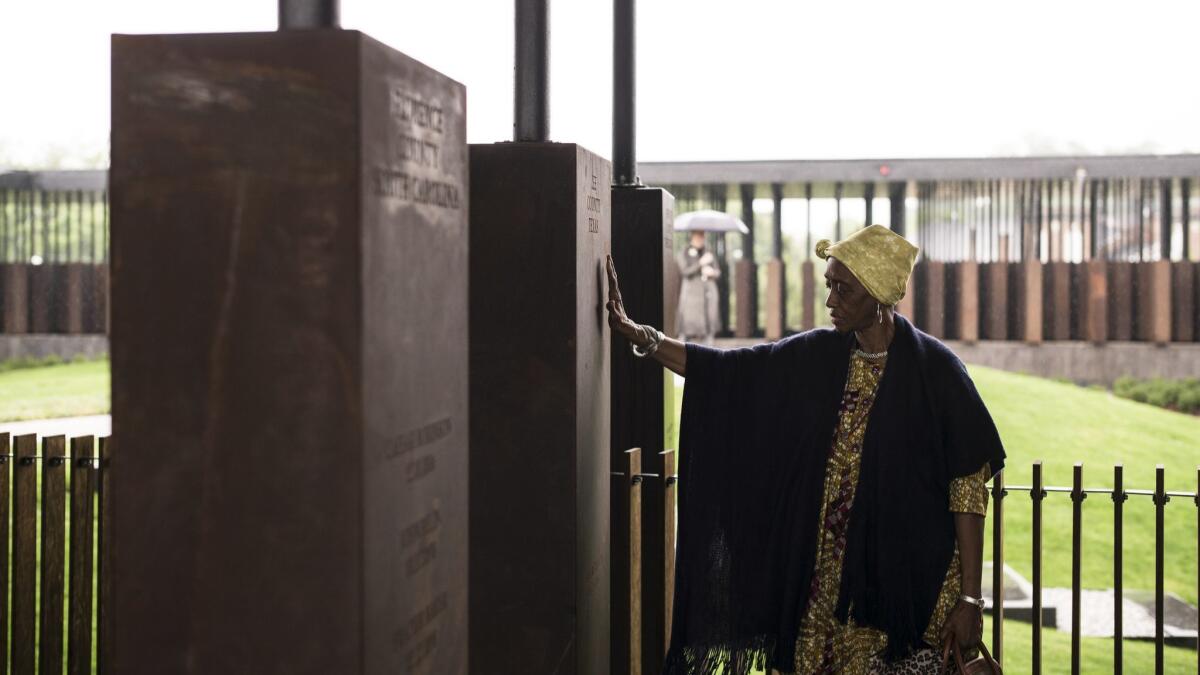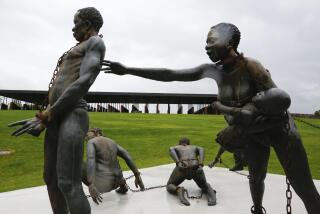Readers React: How lynching was used by whites to destroy competition from black business owners

- Share via
To the editor: Many sincere white Americans have raised the question of why African Americans have failed to become as successful as other people of color, especially recent immigrants to United States. The article on lynchings sheds some light on the subject.
The story of the murder of Elmore Bolling, a successful black businessman, by his jealous white neighbor in Alabama in 1949 was just a glimpse into a pattern of racist violence that terrorized African Americans for generations. On a broader scale, during the Jim Crow era white Americans destroyed prosperous black businesses in many communities.
One of the most notorious of such incidents took place in Memphis in 1892. There, a store called People’s Grocery, which was owned by a successful black businessman, competed with a nearby white-owned shop. The People’s Grocery owner and two of his black employees were lynched by white marauders in a horrific assault that reverberated throughout the nation and wiped out the entrepreneurial spirit of many African Americans in Memphis and elsewhere.
Legrand H. Clegg II, Compton
..
To the editor: I hope the memorial to lynching victims in Alabama pays homage in some way to the first journalist, a black woman, to put an international spotlight on lynching in the South.
Ida B. Wells not only documented the extent of lynching but even more importantly debunked the “rape myth.” This was the prevailing view at the turn of the 20th century that lynching of black men was somehow justified because they raped white women.
Using statistics from white newspapers, Wells revealed that lynchings in the South had many causes, including the rising economic competition of African Americans with whites. Maintaining white supremacy, not the rape of white women, was the overall motivating factor, Wells concluded.
Wells later became an urban reformer and passionate suffragist, but her groundbreaking work was soon largely forgotten after she died in 1931. I hope she is not forgotten today.
Carl Martz, Redlands
Follow the Opinion section on Twitter @latimesopinion and Facebook
More to Read
A cure for the common opinion
Get thought-provoking perspectives with our weekly newsletter.
You may occasionally receive promotional content from the Los Angeles Times.










